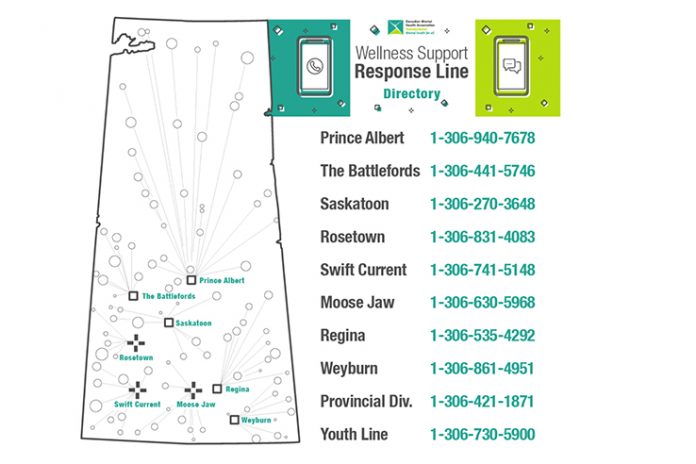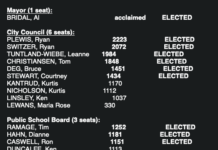Canadian Mental Health Association – Saskatchewan Division
Most people in Saskatchewan rely on shortcuts to describe their emotional state—even during the COVID-19 pandemic. According to new data released Monday by the Canadian Mental Health Association (CMHA) in partnership with Maru/Matchbox, 73 per cent of those asked “how are you?” rely on “I’m fine, thanks” to express how they’re doing, despite the fact that people in Saskatchewan are feeling more negative emotions than positive ones these days (65 per cent negative versus 35 per cent positive). The data were released to mark Canada’s 69th annual Mental Health Week, which runs May 4 to 10.
Despite a pandemic-driven growth in video-conferencing and social media usage, Canadians are feeling more isolated than ever (up 12 points from 39 per cent to 47 per cent in less than one month) and crave real, meaningful connections. In fact, more than two-thirds of Saskatchewanians (68 per cent) report they would like to experience more meaningful social interactions in their daily life.
“Most Canadians want more social connection, yet they’re reluctant to have the kind of honest, open conversations that build the connection they crave,” says Margaret Eaton, national CEO of CMHA. “In our society, it’s a cultural norm to ask people how they’re doing, but not to expect, nor provide, a truthful answer. This Mental Health Week, it’s time to get real about how we feel. It’s clear we need each other more than ever.”
Prior to the global pandemic, loneliness was already a major public health concern. People with weak or few social connections are at increased risk for anxiety, depression, anti-social behaviour and suicide. And a lack of strong relationships has the same negative impact on life expectancy as smoking 15 cigarettes a day.
Due to physical distancing measures, people are isolated in their homes, missing out on family events and in-person activities and it appears they’re feeling it. Half of Saskatchewan people are feeling anxious (50 per cent), and only 13 per cent are feeling happy. As we face social distancing measures, it’s important to note that people don’t need to be close to feel close.
“It doesn’t just feel good to connect—it’s actually good for everyone’s mental health,” says Phyllis O’Connor, Executive Director, CMHA – Sask. Division.
Strong social networks lead to better self-esteem, coping mechanisms and a sense of well-being, and reduce depression and distress by providing emotional support, companionship and opportunities for meaningful social engagement.
During these times of social distancing, we have created phone lines across the province to provide a listening ear and support. You can find the phone line to a CMHA Wellness Support Response worker near you on our website at sk.cmha.ca or on our Canadian Mental Health Association, Saskatchewan Division Facebook page. Also, we have some free, online courses available at our H.O.P.E. Learning Centre including “Coping with Current Events”, and “Wellness Management” for which you can register by email at hopelc@cmhask.com. Many of our branches around the province have services available to access as well so contact your local branch for information.
The focus of this year’s Mental Health Week is to promote social connection and the role it plays in good mental health. To get involved, you can:
• Learn more about your mental health and how to feel close even when we can’t be at mentalhealthweek.ca/yourmentalhealth
• Share your support on social media by downloading a toolkit at mentalhealthweek.ca/toolkit and using hashtags #GetReal #MentalHealthWeek and #TogetherApart
• Donate to support CMHA mental health programs and services at sk.cmha.ca and hit the donate button
• Connect. If you or someone you love is struggling, please contact your local CMHA or our Wellness Support lines to find out about virtual and phone-based support services there to help you. If you are in crisis, please call 811 toll free in Saskatchewan.
Mental Health Week was introduced by CMHA in 1951 and has since become a Canadian tradition. To learn more, visit www.mentalhealthweek.ca






